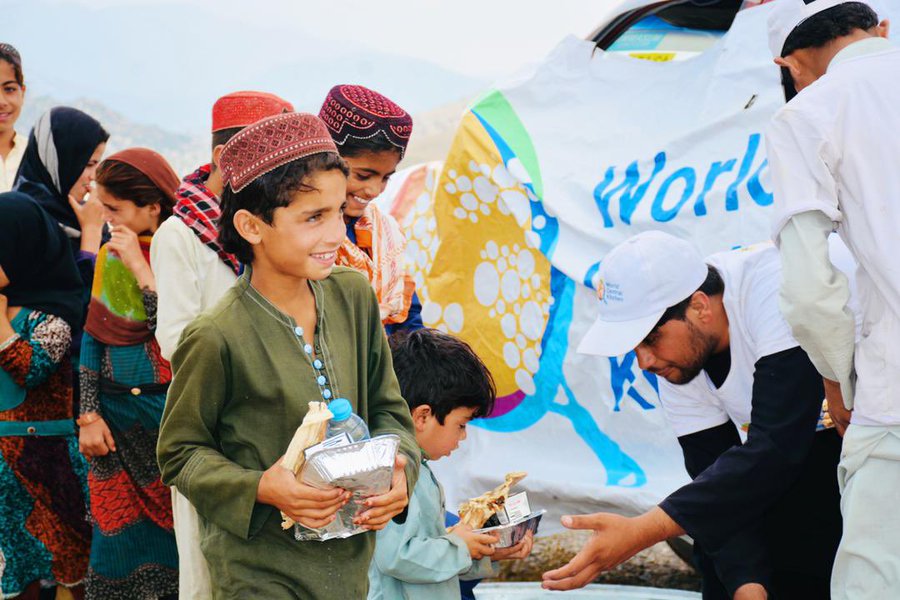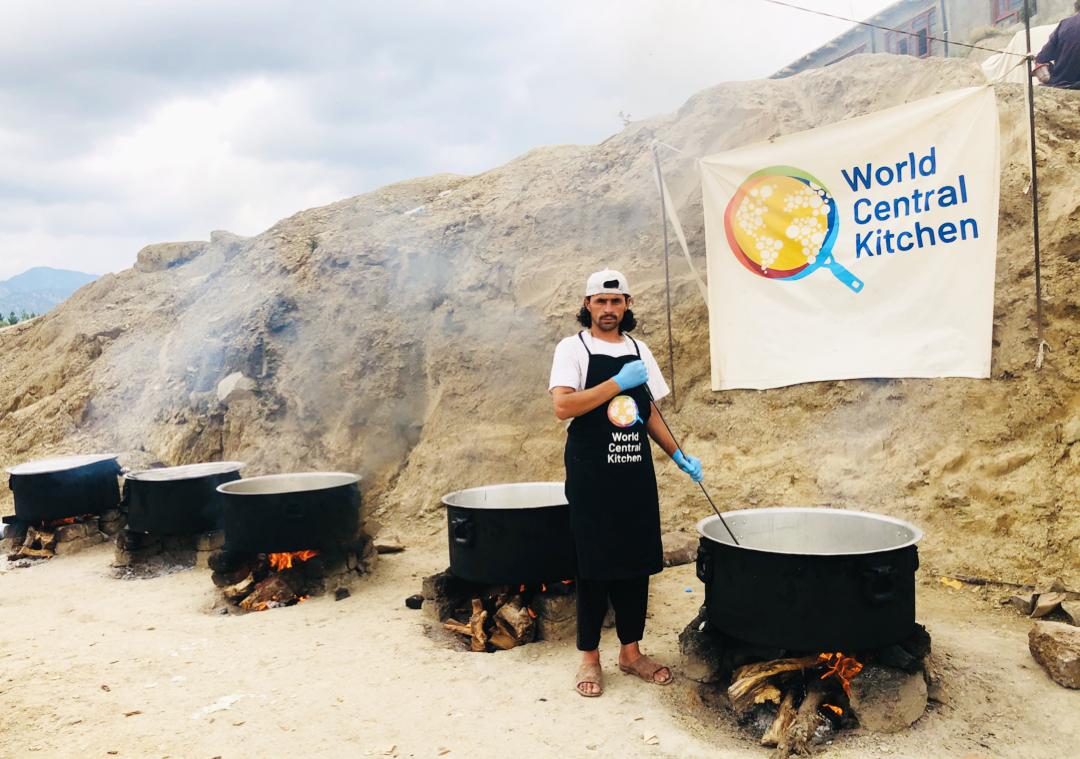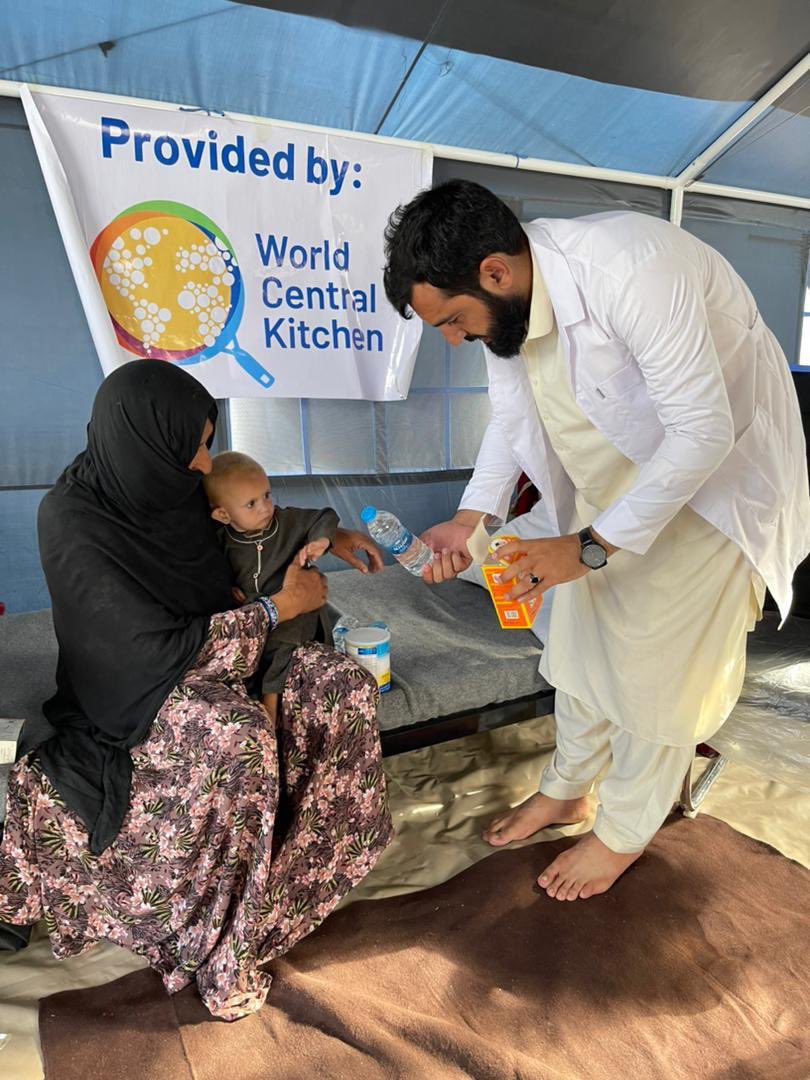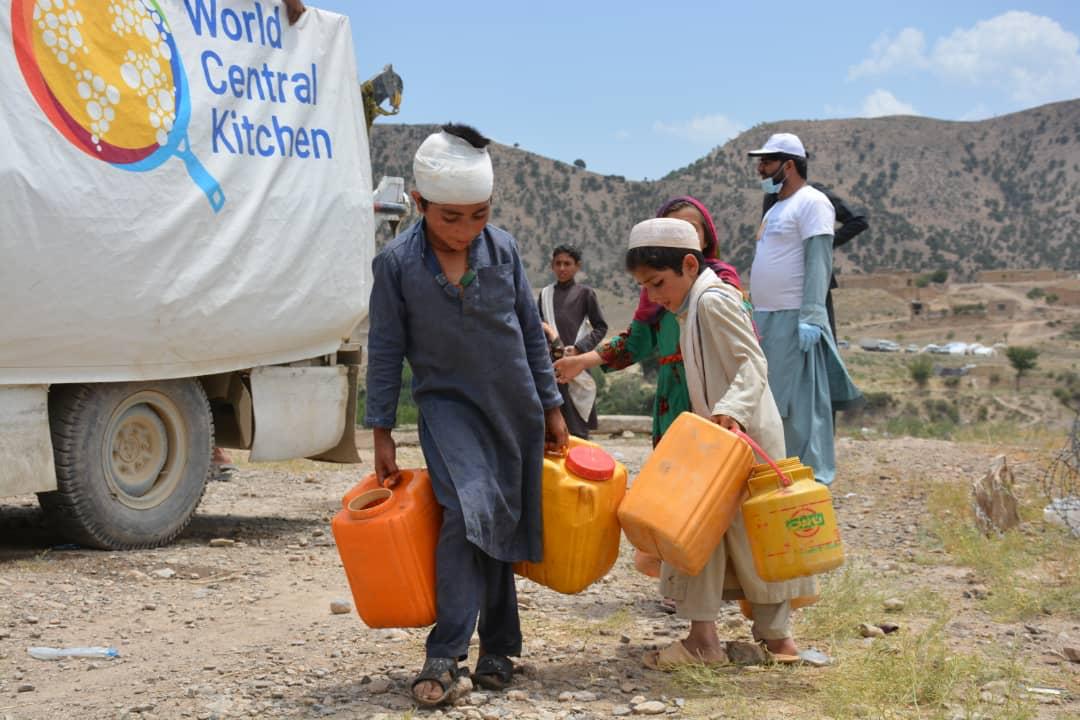
Devastating the remote mountainous provinces of Paktika and Khost in eastern Afghanistan, the 5.9 earthquake destroyed entire villages and left many residents without homes. The district of Gayan was the hardest hit from the initial quake, and two days later an aftershock killed more people. Families and rescue teams continued to search for survivors as rain posed more difficulties.
The disaster was reported as the most damaging earthquake in the country in two decades—and many medical facilities were already struggling with operations. Almost a month later, a second earthquake struck.
Together with Hospitality for Humanity, whose response lead was from the affected region, we distributed hot food and water to shelters, hospitals, and mobile clinics working around the clock. For the youngest impacted, we provided fruit and baby formula.
By the numbers
hot meals served
of water distributed
WCK Relief Kitchens
In less than 24 hours, we set up our first Relief Kitchen in Gayan, and then quickly established a second kitchen in the hard-hit district of Barmal. WCK chefs scaled up our efforts to meet the increasing needs, cooking up 2,500 daily meals. We were the only source of freshly prepared, hot food. Delivery was challenging due to the remote landscape and unseasonal rain that brought floods. Still, our teams persevered.
Support for Babies
WCK’s relief efforts shift and adapt to meet the needs of each community we serve—at times this goes beyond providing fresh meals. For the youngest children impacted by the earthquake in Afghanistan, our Relief Team provided much-needed baby formula.
Fresh Water Delivery
Using pickup trucks, the WCK team delivered 363,000 liters of water to villages devastated by the earthquake. Families lost their entire homes and livelihoods, and clean water was a challenge for both drinking & medical use.

Chefs For Afghanistan
Relief Team cooks up special meals forEid al-Adha
Despite the heavy toll of the earthquake, families came together to celebrate Eid al-Adha, one of the most holy festivals in the Muslim calendar. To help mark the event, each of WCK’s kitchens prepared thousands of extra meals, including Afghanistan’s national dish, Kabuli palaw—composed of meat with rice, raisins, and carrots.


